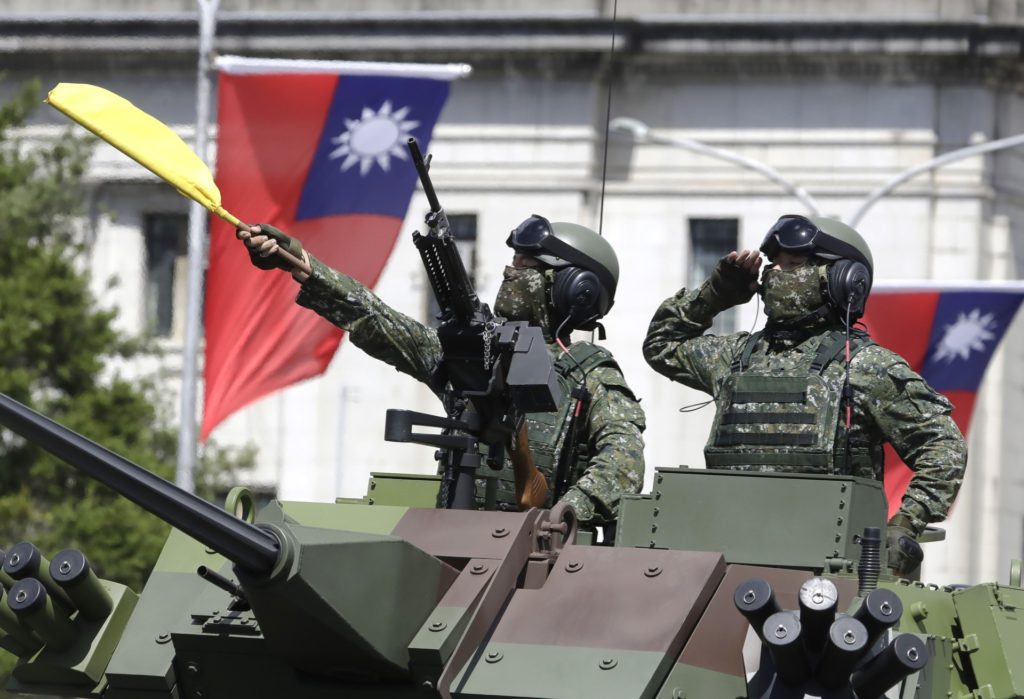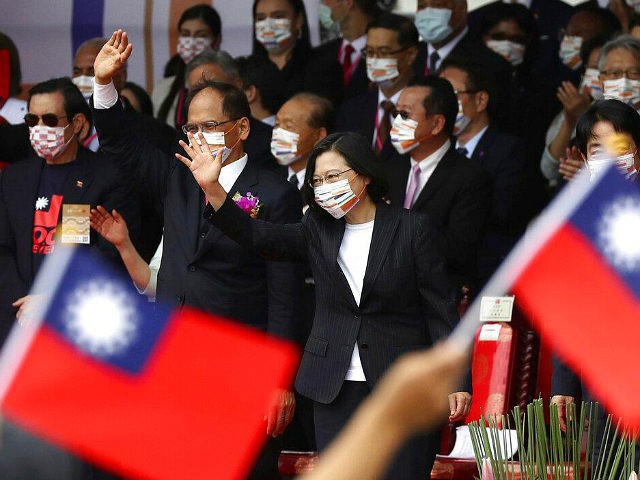Taiwan’s military on Tuesday published a guidebook for civilians advising them on appropriate actions in the event of a “war,” appearing to indicate that Taiwan anticipates a higher risk of potential military conflict with nearby China after Beijing ramped up threats against the sovereign island nation in recent months, Agence France-Presse (AFP) reported.
Taiwan’s Armed Forces issued the 28-page leaflet, the first of its kind, on April 12. It contains information “the general public can use as an emergency response guideline in a military crisis or natural disaster,” Taiwan Defense Ministry Spokesman Sun Li-fang told reporters during an online press conference on Tuesday.
AFP described the booklet as inspired by similar guides produced by the militaries of Sweden and Japan. Taiwan’s new civilian manual instructs the island nation’s residents “where to find bomb shelters via mobile phone apps and what to do in an emergency including how to distinguish air raid sirens.”
The compendium additionally highlights “basic survival skills for the public during air raids, massive fires, building collapses, power outages and natural disasters,” according to AFP.
“The guide is for the public to better prepare themselves before a war or disaster happens,” Taiwan Defense Ministry official Liu Tai-yi said on April 12.
Liu, who specifically represents the Taiwan Defense Ministry’s “All-Out Defense Mobilization Agency,” said his bureau hopes the Taiwanese public “can familiarise themselves where the safety shelters are” before a theoretical crisis.

Taiwanese soldiers salute during National Day celebrations in front of the Presidential Building in Taipei, Taiwan on Oct. 10, 2021. (AP Photo/Chiang Ying-ying, File)
Increasingly belligerent military actions by China’s People’s Liberation Army (PLA) against Taiwan, such as incessant flyovers that penetrate the island nation’s Air Defense Identification Zone (ADIZ), have forced Taipei to direct greater energy toward defensive measures in recent months.
Taiwan’s military said in mid-March it was working to “boost its combat readiness” by overhauling training regimens for reservists.
Taiwan News detailed the new protocol on March 12, writing:
Reservists in Taiwan have been trained in five to seven day stints, which they undergo four times in their eight years of reservist duty.
Under the new program, they will train for 14 days a time and participate in more intensive drills, but will only have to do so twice every eight years. …
Saturday’s drill, meant to simulate defending a beach against attack, was performed by some of the 400 reservists who started the new 14-day training program on March 6.
In addition to bolstering its combat capabilities, the Taiwanese Armed Forces have also recently “increased purchases of military equipment such as jets and anti-ship missiles,” AFP noted on April 12.
“The island is also considering extending its compulsory military service to 12 months. Currently all eligible males have to undergo a four-month basic military training,” according to the news agency.
Taiwan has devoted increased resources to its military over the past year amid the backdrop of rising threats against its national sovereignty by China’s ruling Communist Party. Beijing views Taiwan, which is an island nation located off China’s southeastern coast, as a territory of China. In accordance with this perception, the Chinese Communist Party has repeatedly issued official statements in which it claims a “reunification” between China and Taiwan is “inevitable.” Beijing’s stance on Taipei fails to acknowledge all of Taiwan’s established hallmarks of national sovereignty. Taiwan’s democratically-elected government operates according to its own constitution and oversees its own military.

COMMENTS
Please let us know if you're having issues with commenting.